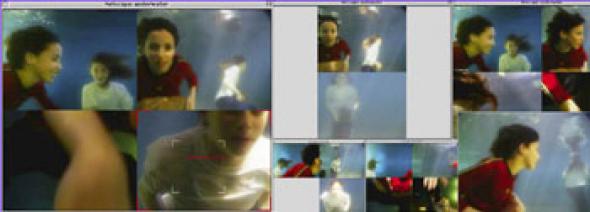Reports of my Death have been Greatly Exaggerated
Are browser designers reinventing the wheel or flooring the accelerator as they hit the blind curve of the future? Josephine Berry went to The Third International Browser Day: The End of the Browser, at Amsterdam’s Society for Old and New Media, to find out.
This year’s International Browser Day at first (and perhaps also last) glance looked about as impossible as Mission Impossible – only minus the rubber-boned acrobatics of our favourite Hollywood clown Tom Cruise. Computer design students were invited by Amsterdam’s Society for Old and New Media not only to imagine but also to design the prototype of a future browser for a post-browser world. Of course at this festival dedicated to mental latitude, no one was going to be a spoilsport and complain about the contradictions of the undertaking.
Or perhaps it’s fairer to say that contestants were well aware of the recent rumblings in the IT world which indicate that the days of the Internet’s monogamous relationship to the computer are all but numbered and with them the browser’s. As the Browser Day Reader amply demonstrated, inventions such as WAP, Linux’s development of a post-PC operating system that can be fitted into your washing machine, and the as-yet-totally-vague-but-no-doubt-evil plans for the MicrosoftNet are set to convert the Internet to polygamy. Given this requirement to design an anachronism that could cope with the future, it was no surprise to find that, although in some cases intriguing, most entries were hopelessly short or wide of the mark, opting either to take refuge in conservatively concrete embellishments of existing browsers or to hurtle headlong and blindfold into the future.
One of the most irritating tendencies of the ‘embellishment’ camp was to dream up new metaphors with which to flog old rope. This often resulted in creating new visualisations of existing functions such as Retroweb, an exploded 3D timeline representing past web use as a sequence of differently coloured and scaled cubes on receding axes. In effect, little more than a quantitatively organised and aesthetically pleasing rendition of the ‘history’ function in Netscape Communicator or Microsoft Explorer. At the lo-tech end of the spectrum, however, this also led to some of the more eccentric entries such as sociologist and net neophyte Suzanne Hin’s (implausibly prize-winning) Scope, an attempt to avert the dangers of techno-solipsism by imposing the sorts of social responsibilities and unsolicited encounters we get in the Real World. Hin prescribed involuntary fostering into a net family of some 150 members as a cure – an inescapable contract whose reward would be the inheritance of that unquestionable wisdom which every family possesses. Touchingly idealistic as this project was, it’s hard to see how – unlike with real families – members could technically be prevented from leaving, and at the same time how this kind of compulsory familial belonging differs from the hardly non-stick membership to existing net communities which already exists through mailing lists and chatrooms.
Another wheel-reinventing approach was to think up a reassuringly squishy and organic metaphor such as evolution, swarming bees or plant growth to, well, grow a browser that could variously express the environmental pressures of its use (the Darwin and Zinnzeug browsers) or turn its users into green-fingered data gardeners, planting and cross-fertilising the information of life (Meta-Matic). But squish was also a trope used for those not merely post-browser but also post-human entries which imagined a browser integrated into the body. These browser-wombs, in which the user floats in amniotic data fluid, ranged from a celebration of the sensuality of this naked, hardware-free encounter (Underwater, End of the Browser) to Orwellian paranoia in which the Net knows your thoughts even before you do (Efficiency).
Outlandish as the post-humanists often were, their fantasies of an all-pervasive IT environment seem closer to the ‘smart’ future being busily engineered by our friends in Redwood Park than those more conservative adaptations of our fast-fading present. Last year’s winner Andrej Mrackovski hit the futuro-realist nail bang on the head when he announced his attempt to create a 3D pixel, “a place where Atoms and Bits meet”. Although top prize went to Victor Vina’s Hyperspc – an elegant text-only scrapbook tool for collating Web documents – and rewarded more classical design values, the rest of the prizes endorsed a kind of weak and woolly utopianism. Caught between the prosaic and the hopelessly blue-sky, far from inaugurating the browser’s death we entered a kind of browser purgatory – a conclusion which the event’s compère John Thackera suspected early and voiced through a quote from Mark Twain: “Reports of my death have been greatly exaggerated.”
Josephine Berry <josie AT metamute.com>
Mute Books Orders
For Mute Books distribution contact Anagram Books
contact@anagrambooks.com
For online purchases visit anagrambooks.com








